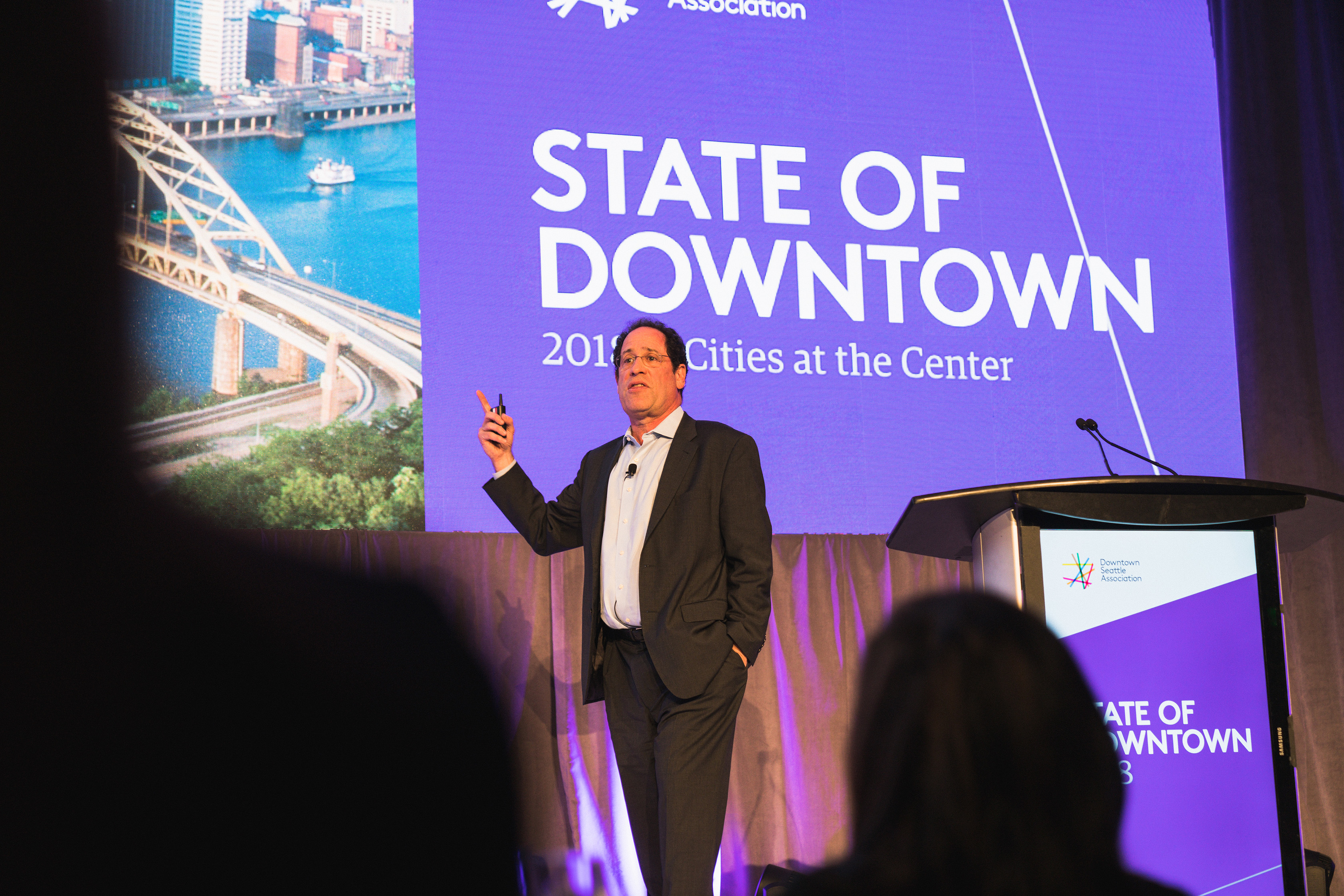News
What Seattle can learn from Indianapolis, Pittsburgh and Copenhagen about navigating economic upheaval
Posted on

This story was originally published by GeekWire on Feb. 19, 2018.
In this period of political, economic, and technological upheaval, Bruce Katz believes we should look to cities to solve societal challenges.
Katz is The Brookings Institution’s first Centennial Scholar and author of “The Metropolitan Revolution” and “The New Localism.” He shared his message about empowering cities at a Downtown Seattle Association event last week. Katz urged Seattle to create more intentional public-private partnerships to better aggregate and distribute the massive wealth generated in the city by industries like tech and healthcare.
Katz held up Pittsburgh, Indianapolis, and Copenhagen as examples of cities that found creative ways to solve problems on their own.
“The good news is, power belongs to the problem solvers,” Katz told the Seattle crowd. “The hard news is every city and metropolis is basically on their own to figure out their future and to fund the future.”
By coincidence, he focused part of his talk on a place where GeekWire has been spending a lot of time.
Pittsburgh, Katz said, is a model for investing in the future. The longtime Rust Belt town reached near ruin when the steel industry collapsed, but philanthropy and top-notch educational institutions reinvented the city as an innovation center. Pittsburgh is now a hub for artificial intelligence and machine learning, robotics, and health tech — each considered an innovation of the future.
“Pittsburgh is at the forefront of five of maybe 12 or 15 next-generation technologies that, within a relatively short period of time, will generate about half of global GDP,” Katz said. He then turned to Seattle. “You are also at the vanguard of many of these and other technologies. The cities that are on the ground floor of this stuff are going to be very, very wealthy.”
But Seattle needs to get better at managing and directing that wealth toward solutions that improve the city for everyone, Katz said. The city could learn from Indianapolis, where sports industry CEOs meet quarterly to collectively decide where to make their investments to have the most impact.
“They have perfected the mechanics of collaboration,” Katz said. He added, “This is the wealthiest country in the world, by far, with a lot of capital that’s sitting on the sidelines. In Indianapolis, that capital is harnessed and comes together to, basically, make transformative investments.”
Finally, Katz implored Seattle to bridge the gaps between city and state government and the public and private sectors. He believes those public-private partnerships can find creative ways to fund social impact projects without necessarily raising taxes. Take Copenhagen, where the municipal and national government created a corporation to manage broad swathes of publicly owned land. The only rule, Katz says, was that the yield from land sales and leases had to fund a city-wide subway system.
“If you go to Copenhagen today, they have built one of the great subway systems in the world without a kroner of taxes,” he said.
In the U.S., these new entities and creative methods of problem-solving are increasingly necessary as the federal government rolls back aid and investment programs, according to Katz. He believes Seattle and other west coast cities could set the standard for the nation because of their massive wealth generation and progressive electorates.
“We’re going to have to figure out new kinds of entities that come together — maybe borrowed and adapted from Pittsburgh and Indianapolis and Copenhagen — or maybe just invented here, but we’re going to have to figure out 21st-century governance that is multi-sectoral and is multi-disciplinary,” Katz said. “This is the challenge we have.”